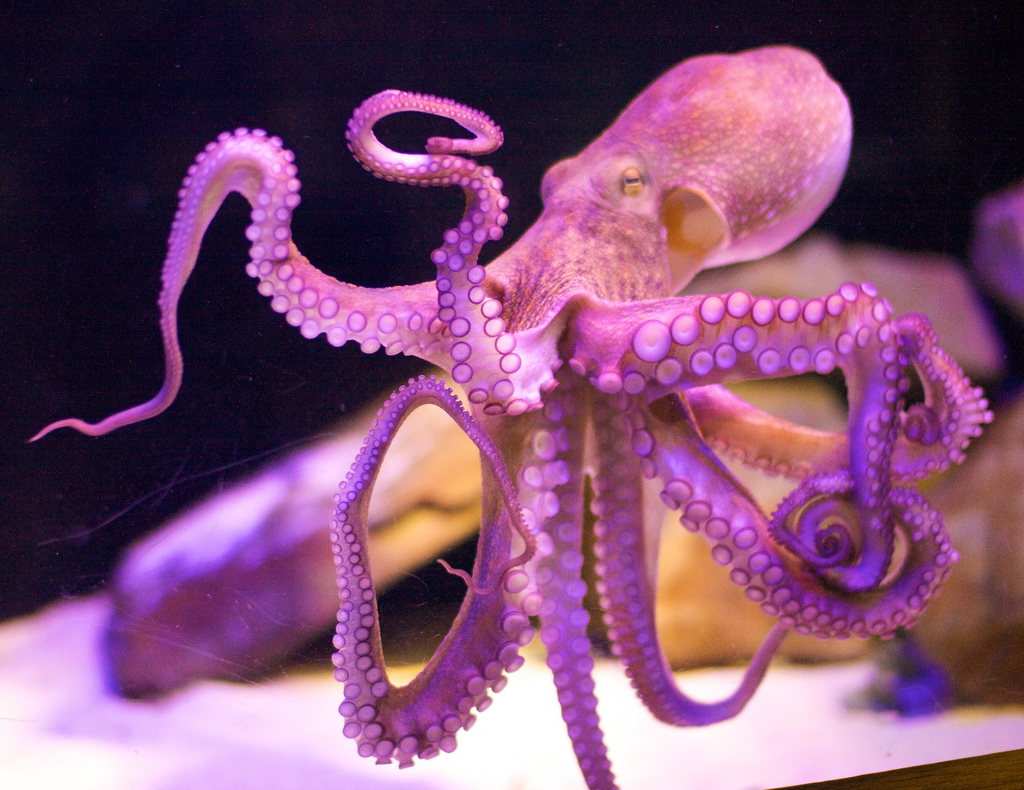The octopus is a strange and alluring creature that seems alien-like. With their large tentacles, shape-shifting skills, and camouflage that makes it appear as if the octopus may have come from another planet.
Recently, 33 scientists from around the world, including molecular immunologist Edward Steele and astrobiologist Chandra Wickramasinghe, published a paper that suggested that octopuses may, in fact, be aliens.
The paper was published in March 2018, in Progress in Biophysics and Molecular Biology. It is a controversial topic and the majority of scientists may disagree. However, the paper is worth the read and discussion, according to Quartz Media.
The paper provokes people with bizarre theories, forcing them to acknowledge there are aspects of life on Earth for which classic evolutionary theory has no explanation.
Traditionally, the octopus is believed to come from the nautiloid and evolved 500 million years ago. However, that relationship does not explain how these incredible cephalopods obtained all their awesome characteristics or why they are so genetically different from their nautiloid ancestors.
According to the paper:
The genetic divergence of Octopus from its ancestral coleoid subclass is very great…Its large brain and sophisticated nervous system, camera-like eyes, flexible bodies, instantaneous camouflage via the ability to switch color and shape are just a few of the striking features that appear suddenly on the evolutionary scene.
The transformative genes that lead from the ancestral nautilus to the common cuttlefish to squid to the common octopus cannot be found in any pre-existing life form, according to the authors of the paper.
It is reasonable to suggest that octopuses seem as if they were borrowed from the far distant future, in terms of terrestrial evolution, or realistically from the cosmos at large.
The authors continue, stating that the octopus arrived on Earth in “an already coherent group of functioning genes within (say) cryopreserved and matrix protected fertilized octopus eggs.” These eggs could have arrived in icy bolides 500 million years ago. The authors confess that such and extraterrestrial origin is a counter to the dominant theory.
There are few members within the scientific community who would agree that octopuses originated from outer space. Nevertheless, the paper continues about the origin of cephalopods. They explore a theory called “panspermia,” which is rooted in the ideas of ancient Greece. Panspermia means “seeds everywhere.”
The theory is that the seeds of life are everywhere in the universe and some life on Earth might have originate from the seeds in space. In the paper, the authors believe that seeds, or alien life forms, in multiple forms, including space-resistant and space-hardy viruses and bacteria. This argument is supported by organic matter found in comets. There are also various medical studies on the intelligent, self-replicating abilities and super strength of viruses.
The paper reviews 60 years of experiments and observations from a variety of scientific fields to support the unusual conclusions.
Virologist Karin Moelling of the Max Planck Institute Molecular Genetics in Berlin does not believe the octopus originated from outer space. However, she believes the paper is worth contemplating. because there is so much that is unknown about the origins of life on Earth.
Moelling wrote a commentary on the publication stating the article is useful and calls for attention. It is worth talking about, however the premise about viruses, microbes, and animals arriving from space is far fetched and cannot be taken seriously.
Keith Baverstock is an evolutionary scientist from the University of Eastern Finland. In his commentary on the paper, he stated that the theories would support that the origin of life comes from space, however, the paper does not necessarily lead to that conclusion. There are other reasonable explanations for the evidence offered in the publication.
The authors of the paper believe that some forms of life originated on Earth but believe earlier forms of life originated elsewhere. The two theories are not mutually exclusive, and together they help fill some of the gaps in the current scientific understanding that the singular evolutionary theory cannot explain.
The paper has withstood a year of intense peer-review before publication. According to Steele, the paper has “passed some severe and tortuous tests.”
People tend to agree with the theories they already believe. This paper, although radical, is worthy of attention for the exploration of different theories. However, the history of science is full of a variety of theories that were mocked and rejected, only to be accepted as truth.
You don’t have to agree with their theories about octopuses from outer space to appreciate their contribution to the great conversation about the origins of life. Society and science need people to articulate unconventional ideas and shake up the status quo. They provoke us to rethink what we image we know.
By Jeanette Smith
Source:
Quartz Media: A controversial study has a new spin on the otherworldliness of the octopus
Image Courtesy of khaosproductions’ Flickr Page – Creative Commons License

